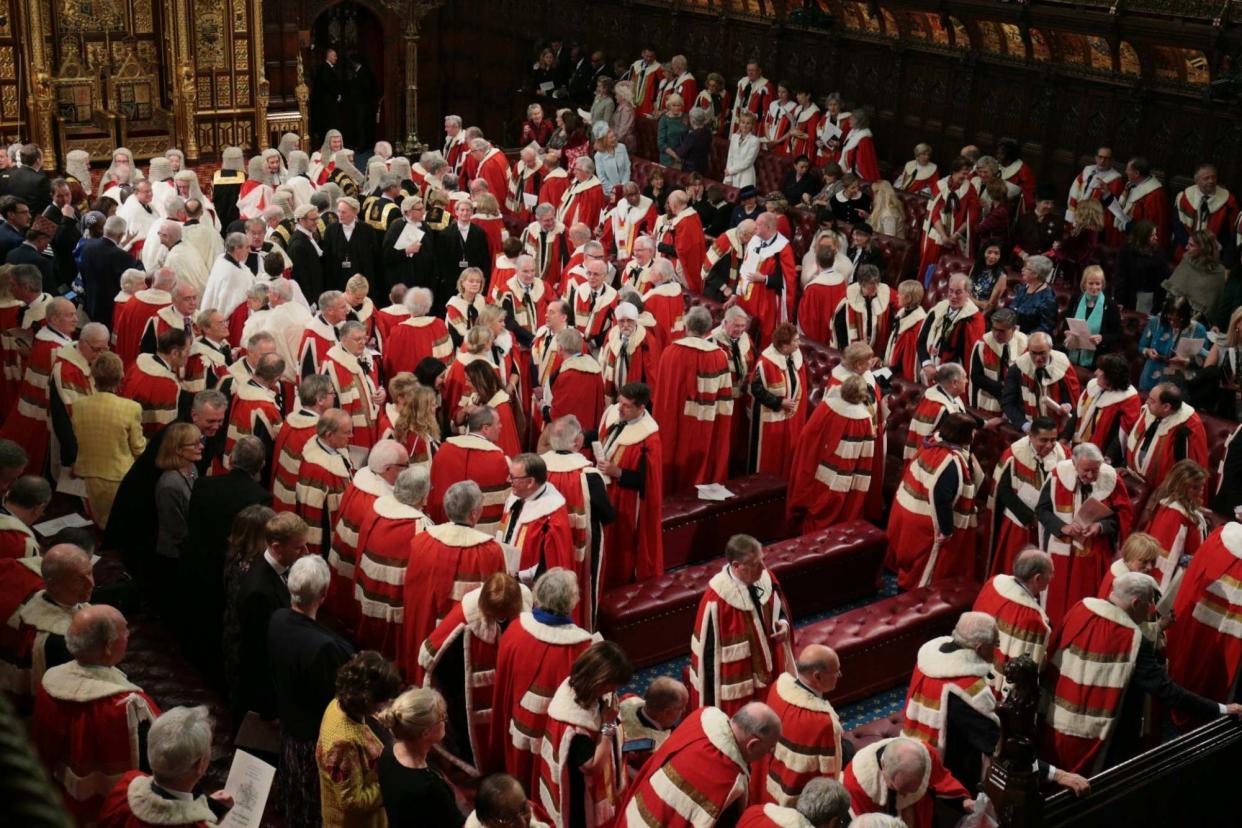Lords under fire over rising expenses bill as peers claim more than average worker’s salary

The House of Lords has facing criticism after it emerged that a soaring expenses bill meant peers received tax-free payments worth more than the average British worker’s salary.
Peers’ expenses and daily attendance allowance claims rocketed to £23m in the year to last March, an increase of 29 per cent on the previous year, according to The Sunday Times.
The average tax-free bill was £30,827, which is higher than the median salary of an ordinary British worker, while 31 members of the Lords claimed more than the take-home pay of an MP.
A Lords spokesperson defended the rise in costs, saying peers sat for fewer days in 2017-18 due to the snap election called by Theresa May.
But the figures prompted renewed calls reform of the upper chamber. The SNP said it was “completely undemocratic” to allow peers to “live the high life” without accountability to the taxpayer.
It also comes as the House of Lords was expected to swell in number to more than 830 with the latest round of honours – the highest number since Tony Blair scrapped hereditary peerages in 1999.
Willie Sullivan, a senior director at the Electoral Reform Society, described the House of Lords as “a rolling expenses scandal”.
“Unelected Lords are taking advantage of the lack of scrutiny in the upper chamber,” he said.
“The Lords is a rolling expenses scandal – and we’ll see this year after year unless there is reform.”
His concern was echoed by the SNP’s Tommy Sheppard, who said the upper chamber had “absolutely no place in a modern democracy”.
“Allowing peers to profit from their status, without any accountability to the taxpayers who pay for them to live the high life, is completely undemocratic,” he said.
“The House of Lords is quickly becoming a national embarrassment. The sooner this undemocratic, out-of-touch institution is abolished, the better.”
A spokesperson for the Lords said it was a “busy and effective revising chamber which does an important job scrutinising legislation and holding the government to account”, making thousands of changes to legislation and comping scores of critical reports.
The spokesperson said: “The increase in the costs of House of Lords allowances in the 2018-19 financial year is largely due to a 25 per cent increase in the number of days that the House sat, rising from 129 in 2017-18 to 161 in 2018-19.
“As members of the Lords can generally only claim allowances for days they attend the House, any increase in sitting days is likely to produce an increase in the cost of members’ allowances.”
It comes as the government faced a fresh bid to overturn the “absurd and indefensible” system of electing hereditary peers that swell numbers in the Lords.
Labour peer Lord Grocott will bring forward a bill to scrap by-elections for hereditary members of the House of Lords, a bizarre custom where seats are doled out to aristocrats through a poll of only a handful of voters.
Mr Blair abolished the majority of hereditary peerages in 1999 but more than 90 people with inherited titles remain, accounting for around 12 per cent of the House of Lords.
Read more
Revolt over ‘absurd and indefensible’ hereditary peer by-elections

